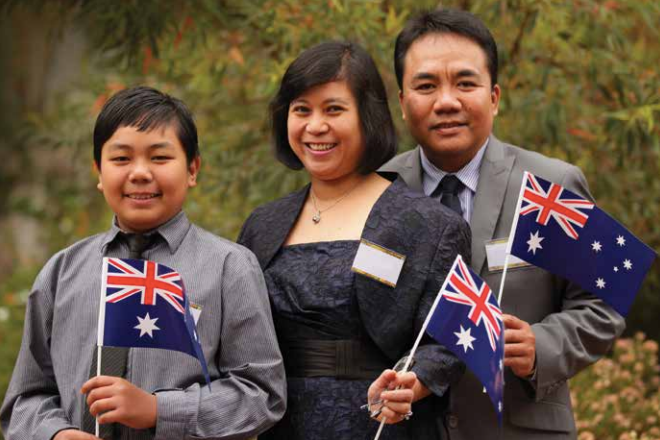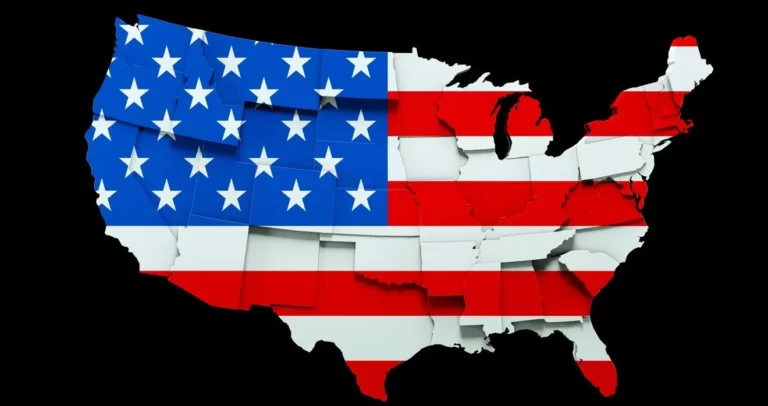Sure way to get your Visa Sponsorship to Canada 2024
Canada has long been known as a land of opportunity, attracting immigrants from all over the world with its high quality of life, diverse culture, and robust economy. For individuals seeking to make Canada their new home, understanding the visa sponsorship opportunities available in 2024 is crucial. In this article, we will explore the various pathways to obtaining visa sponsorship in Canada and the opportunities they present to ensure you live out your dreams.
Context on Canadian visa sponsorship programs
Canada’s visa sponsorship programs have a rich history intertwined with the country’s immigration policies and societal needs. Beginning in the late 19th century, Canada’s immigration system evolved through various phases, each reflecting changing economic conditions, political landscapes, and international obligations. From the early days of Colonization to modern-day immigration streams, visa sponsorships have played a pivotal role in shaping the demographic landscape of Canada.
The roots of Canada’s visa sponsorship programs can be traced back to the late 19th and early 20th centuries when the country was actively seeking settlers to populate its vast territories. The Canadian government introduced various immigration initiatives to attract migrants, including the issuance of land grants and assistance with transportation costs. These programs were instrumental in encouraging Europeans, particularly from the British Isles, to settle in Canada and contribute to its development.
During the post-World War II era, Canada experienced a surge in immigration as it sought to rebuild its economy and address labor shortages. The Immigration Act of 1952 laid the groundwork for the modern immigration system and introduced the concept of family reunification as a basis for immigration. Under this framework, Canadian citizens and permanent residents were allowed to sponsor their family members for immigration, thereby facilitating the reunification of families separated by war and displacement.
The 1960s marked a significant turning point in Canada’s immigration policy with the introduction of the Points System in 1967. This system prioritized skilled immigrants based on factors such as education, work experience, and language proficiency, shifting the focus from country of origin to individual merit. However, family reunification remained a fundamental principle of Canadian immigration policy, and sponsorship programs continued to play a crucial role in facilitating the immigration of spouses, children, and other eligible relatives.
Throughout the latter half of the 20th century, Canada witnessed an expansion of its visa sponsorship programs to accommodate diverse family structures and relationships. Amendments to immigration legislation introduced new sponsorship categories, including spousal sponsorships, parent and grandparent sponsorships, and dependent child sponsorships. These programs provided pathways for Canadian citizens and permanent residents to sponsor their loved ones for permanent residency, fostering the establishment and maintenance of strong family ties across borders.
In the late 20th and early 21st centuries, Canada’s immigration policies underwent further reforms to adapt to changing societal needs and global migration trends. The Immigration and Refugee Protection Act (IRPA) of 2002 consolidated and updated existing immigration laws, reaffirming Canada’s commitment to family reunification while also emphasizing economic immigration and humanitarian considerations. Under IRPA, sponsorship programs were streamlined and standardized to ensure consistency and fairness in the processing of applications.
The launch of the Express Entry system in 2015 revolutionized Canada’s economic immigration programs by introducing a points-based system for selecting skilled workers. While Express Entry prioritized economic immigrants based on their human capital attributes, family reunification remained an integral component of Canada’s immigration policy framework. Sponsorship programs continued to enable Canadian citizens and permanent residents to sponsor their family members for immigration, providing a pathway to permanent residency and eventual citizenship.
In recent years, Canada has made efforts to modernize its visa sponsorship programs to address emerging challenges and opportunities in the global migration landscape. The introduction of the Super Visa for parents and grandparents in 2011 allowed eligible individuals to visit their family members in Canada for extended periods, providing an alternative to traditional sponsorship pathways. Additionally, pilot programs such as the Parents and Grandparents Program (PGP) sought to improve the efficiency and effectiveness of family reunification initiatives through innovative approaches to application processing and intake management.
Looking ahead, Canada’s visa sponsorship programs are likely to continue evolving in response to shifting demographic trends, economic priorities, and humanitarian crises. The government’s commitment to family reunification, coupled with ongoing efforts to attract skilled immigrants and foster inclusive communities, will shape the future direction of Canada’s immigration policy. As the country continues to navigate the complexities of global migration, visa sponsorship will remain a cornerstone of Canada’s approach to building a diverse and prosperous society.
Introduction to Visa Sponsorship
Let’s understand what Visa Sponsorship in context of Canada :
Visa sponsorship in Canada refers to the process by which a Canadian citizen or permanent resident sponsors an individual from another country to come to Canada and become a permanent resident. This sponsorship can be for family members, such as spouses, partners, children, parents, or grandparents, as well as for individuals with specific skills or talents that are in demand in Canada.
Elaborating on Each Sponsorship:
- Family Sponsorship
One of the most common ways to obtain visa sponsorship in Canada is through family sponsorship. Canadian citizens and permanent residents can sponsor their spouses, partners, dependent children, parents, and grandparents to come to Canada and become permanent residents. Family sponsorship allows families to reunite and build a life together in Canada.
- Express Entry
Another popular pathway to obtaining visa sponsorship in Canada is through the Express Entry system. Express Entry is a points-based system that assesses candidates based on factors such as age, education, work experience, language proficiency, and adaptability. Candidates with the highest scores are invited to apply for permanent residency in Canada. Employers in Canada can also use the Express Entry system to sponsor skilled workers for permanent residency.
- Provincial Nominee Programs (PNPs)
Provincial Nominee Programs (PNPs) are another avenue for obtaining visa sponsorship in Canada. Each Canadian province and territory has its own PNP, which allows them to nominate individuals with the skills, education, and work experience needed to contribute to the local economy. PNPs are particularly beneficial for individuals with job offers in specific provinces or territories.
- Skilled Worker Programs
Canada’s skilled worker programs are designed to attract individuals with specific skills and experience that are in demand in the Canadian labor market. The Federal Skilled Worker Program (FSWP), the Federal Skilled Trades Program (FSTP), and the Canadian Experience Class (CEC) are all part of the Express Entry system and offer pathways to permanent residency for skilled workers.
Under the FSWP, individuals with at least one year of skilled work experience in an eligible occupation may be eligible to apply for permanent residency. The FSTP is for individuals with experience in skilled trades, while the CEC is for individuals with Canadian work experience.
- Student Visas
Canada is home to world-class educational institutions, making it an attractive destination for international students. Student visas allow individuals to study in Canada for a specified period of time, and in some cases, can lead to pathways to permanent residency.
After completing their studies, international students may be eligible to apply for a Post-Graduation Work Permit (PGWP), which allows them to gain valuable work experience in Canada. This work experience can then be used to qualify for permanent residency through programs such as the Canadian Experience Class.
- Entrepreneurial Programs
For individuals looking to start a business in Canada, there are several entrepreneurial programs available that offer pathways to permanent residency. The Start-Up Visa Program, for example, allows entrepreneurs with innovative business ideas to immigrate to Canada and receive support from designated organizations.
Similarly, many Canadian provinces and territories offer entrepreneur streams as part of their Provincial Nominee Programs, which allow individuals to establish and operate a business in a specific province or territory.
- Humanitarian and Compassionate Grounds
In certain circumstances, individuals may be eligible for visa sponsorship on humanitarian and compassionate grounds. This may include individuals who are at risk of persecution, abuse, or other forms of hardship in their home country. Applications made on humanitarian and compassionate grounds are assessed on a case-by-case basis.
Application Process
The application process for visa sponsorship in Canada varies depending on the type of visa being applied for. However, there are some common steps that applicants must follow:
– Determine eligibility: Before applying for visa sponsorship, individuals must determine whether they meet the eligibility requirements for the specific program they are applying to.
– Gather documentation: Applicants will need to gather various documents to support their application, including identification documents, proof of relationship (for family sponsorship), educational credentials, language test results, and proof of funds.
– Submit application: Once all required documentation has been gathered, applicants can submit their application through the appropriate channels. This may include online applications through the Immigration, Refugees and Citizenship Canada (IRCC) website or paper applications submitted by mail.
– Attend interviews (if required): Depending on the type of visa being applied for, applicants may be required to attend an interview as part of the application process. This is common for family sponsorship applications and may also be required for certain skilled worker programs.
– Wait for processing: After submitting their application, applicants will need to wait for it to be processed by Canadian immigration authorities. Processing times can vary depending on the volume of applications and other factors.
Fees
There are various fees associated with applying for visa sponsorship in Canada. These fees may include:
– Processing fees: Each visa application comes with a processing fee, which covers the cost of reviewing and processing the application.
– Biometrics fee: In some cases, applicants may be required to provide biometric information (fingerprints and a photograph), which requires an additional fee.
– Right of Permanent Residence Fee (RPRF): Individuals applying for permanent residency may be required to pay the RPRF, which is a one-time fee payable by principal applicants and their accompanying family members.
It’s important for applicants to be aware of all applicable fees and ensure they are paid in full to avoid delays in processing their application.
To help with your search we suggest 10 industries that offer visa Sponsorships
- Tech Companies: Many tech companies in Canada, especially in cities like Toronto, Vancouver, and Montreal, offer visa sponsorships for skilled workers in software development, IT, and engineering.
- Healthcare Sector: Hospitals, clinics, and healthcare facilities often sponsor visas for medical professionals such as doctors, nurses, and medical technicians.
- Engineering Firms: Engineering companies across various fields like civil, mechanical, and electrical engineering frequently sponsor visas for qualified engineers.
- Finance and Banking: Financial institutions and banks in Canada often sponsor visas for professionals in finance, accounting, and banking.
- Education Institutions: Universities, colleges, and educational institutions sponsor visas for academic staff, researchers, and professionals in the education sector.
- Hospitality and Tourism: Hotels, resorts, and tourism companies sponsor visas for skilled workers in hospitality management, tourism, and culinary arts.
- Construction Companies: Construction firms sponsor visas for workers in trades such as carpentry, plumbing, electrical work, and construction management.
- Manufacturing Sector: Manufacturing companies offer visa sponsorships for skilled workers in areas like production, quality control, and logistics.
- Agriculture and Agri-food Industry: Farms, food processing plants, and agricultural companies sponsor visas for workers in farming, food production, and agricultural research.
- Retail and Consumer Goods: Retail chains and consumer goods companies sometimes sponsor visas for management-level positions and specialized roles in marketing, sales, and supply chain management.
To find specific companies offering visa sponsorships, you can search for job postings on Canadian job websites, here are ten job boards where you can find visa sponsorship opportunities in Canada:
- Indeed: A popular job search engine where you can filter jobs by visa sponsorship.
- Monster Canada: Offers a wide range of job listings, including those that offer visa sponsorship.
- Workopolis: Provides job listings across various industries and locations, including opportunities for visa sponsorship.
- LinkedIn: You can use LinkedIn’s job search feature and filter for companies that sponsor visas.
- CanadaVisa: Specifically tailored for immigration to Canada, it often includes job postings from employers willing to sponsor visas.
- Canadian Visa Expert: Similar to CanadaVisa, this site provides job listings with visa sponsorship options.
- Government of Canada Job Bank: Some government positions offer visa sponsorship for eligible candidates.
- Glassdoor: Allows you to search for jobs and read reviews about companies’ visa sponsorship practices.
- CareerBuilder Canada: Offers job listings and allows you to search specifically for visa sponsorship opportunities.
- Canada Jobs: Provides job listings from various sources, including companies that offer visa sponsorship.
Remember to thoroughly research each opportunity and ensure they meet your criteria for visa sponsorship and employment.
While Canadian visa sponsorship offers a pathway for family reunification and immigration, there are various reasons why sponsorship applications may not be successful. Here are ten common reasons why Canadian visa sponsorships may not come through:
- Incomplete Documentation: Failure to provide all required documents or submit incomplete application forms can result in the rejection of a sponsorship application. Missing documents, such as birth certificates, marriage certificates, or proof of relationship, can lead to delays or denials.
- Financial Ineligibility: Sponsors are required to demonstrate that they have the financial means to support their sponsored relatives upon their arrival in Canada. If sponsors fail to meet the minimum income requirements or provide adequate proof of financial stability, their sponsorship applications may be refused.
- Inadmissibility Issues: Both sponsors and sponsored individuals may be deemed inadmissible to Canada for various reasons, including criminal convictions, medical conditions, or security concerns. Inadmissibility issues can result in the refusal of a sponsorship application unless mitigating measures are taken.
- Misrepresentation: Providing false or misleading information on sponsorship applications can lead to refusals and even permanent bans from entering Canada. Sponsors and sponsored individuals must be truthful and transparent throughout the application process to avoid allegations of misrepresentation.
- Relationship Fraud: Immigration authorities scrutinize sponsorships involving spousal or conjugal relationships to prevent marriage fraud or abuse of the immigration system. If there are doubts about the genuineness of the relationship between the sponsor and the sponsored individual, the application may be refused.
- Insufficient Proof of Genuine Relationship: Sponsors must provide compelling evidence to demonstrate the genuineness of their relationship with the sponsored individual. This may include photographs, correspondence, joint financial records, or affidavits from family and friends. Failure to provide sufficient proof of a genuine relationship can result in application refusals.
- Health and Medical Issues: Sponsored individuals must undergo medical examinations to ensure they meet Canada’s health requirements for immigration. If a sponsored individual is found to have a serious medical condition that could pose a burden on the Canadian healthcare system, their application may be refused.
- Changes in Sponsor’s Circumstances: If sponsors experience significant changes in their circumstances, such as job loss, bankruptcy, or divorce, they may no longer meet the eligibility criteria for sponsorship. In such cases, sponsorship applications may be refused or delayed until sponsors can demonstrate their ability to fulfill their obligations.
- Previous Sponsorship Undertakings: Sponsors who have previously defaulted on their sponsorship undertakings or failed to comply with sponsorship obligations may face challenges in sponsoring new relatives. Immigration authorities may scrutinize past sponsorship histories and may refuse applications if there are concerns about sponsors’ reliability.
- Quotas and Processing Backlogs: Visa sponsorship programs, especially those with limited intake caps or high application volumes, may experience processing delays or backlogs. In some cases, sponsorship applications may be refused due to quota limitations or administrative constraints, rather than individual eligibility issues.
Navigating the Canadian visa sponsorship process can be complex, and applicants must carefully prepare their applications to address potential issues and mitigate risks of refusal. Seeking guidance from immigration professionals or legal experts can help sponsors and sponsored individuals understand their rights and responsibilities and increase their chances of a successful sponsorship outcome.
By addressing these potential pitfalls with careful preparation and attention to detail, you can increase the likelihood of a successful Canadian visa sponsorship.
The Canadian government offers various incentives and benefits to encourage sponsorship programs and facilitate family reunification and immigration. These incentives aim to support sponsors and sponsored individuals throughout the immigration process and promote the successful integration of newcomers into Canadian society. Here are some key incentives provided by the Canadian government for visa sponsorship programs and how to take advantage of them:
- Family Reunification: One of the primary incentives of Canadian visa sponsorship programs is the opportunity for family reunification. Sponsors can apply to sponsor their spouses, common-law partners, conjugal partners, dependent children, parents, and grandparents for permanent residency in Canada. Family reunification fosters strong familial bonds and promotes the well-being and stability of sponsored individuals and their families.
- Pathway to Permanent Residency: Sponsored individuals who are approved for immigration to Canada through sponsorship programs are granted permanent residency status. This status allows them to live, work, and study in Canada indefinitely, access healthcare and social services, and eventually apply for Canadian citizenship. Permanent residency offers stability and security for sponsored individuals and their families, enabling them to build a future in Canada.
- Access to Social Benefits and Services: Permanent residents of Canada, including sponsored individuals, are entitled to access a wide range of social benefits and services provided by the Canadian government. These benefits may include healthcare coverage through the provincial healthcare system, education for children, social assistance programs, and support services for newcomers. Access to social benefits and services enhances the well-being and quality of life of sponsored individuals and contributes to their successful integration into Canadian society.
- Work Authorization: Sponsored individuals who are granted permanent residency in Canada are eligible to work in any occupation and for any employer in Canada. They are not required to obtain a separate work permit or undergo a labor market impact assessment. This unrestricted access to the Canadian labor market allows sponsored individuals to pursue employment opportunities that match their skills, qualifications, and career aspirations, contributing to their economic integration and self-sufficiency.
- Language and Settlement Services: The Canadian government provides language training and settlement services to help sponsored individuals integrate into Canadian society and participate fully in social, economic, and civic life. These services may include language classes in English or French, orientation sessions on Canadian culture and society, job search assistance, and community support programs. Access to language and settlement services facilitates the integration process and enhances the social inclusion of sponsored individuals and their families.
- Reduced Processing Times: In an effort to streamline the immigration process and reduce processing times, the Canadian government has implemented expedited processing measures for certain sponsorship applications. For example, the Express Entry system for skilled workers includes provisions for spousal sponsorship, allowing eligible sponsors to apply for permanent residency for their spouses or common-law partners through a fast-tracked process. Expedited processing measures help sponsors and sponsored individuals reunite more quickly and begin their new lives in Canada sooner.
- Flexibility in Sponsorship Categories: The Canadian government offers flexibility in sponsorship categories to accommodate diverse family structures and relationships. In addition to spousal sponsorships, sponsors can apply to sponsor their dependent children, parents, and grandparents for immigration to Canada. Moreover, sponsorship programs are inclusive of same-sex relationships and recognize various forms of family ties, ensuring that all eligible individuals have the opportunity to reunite with their loved ones in Canada.
- Super Visa Program: The Super Visa program allows parents and grandparents of Canadian citizens and permanent residents to visit Canada for extended periods without the need to renew their visitor visas frequently. Super Visa holders can stay in Canada for up to two years per visit and enjoy multiple entries for a period of up to 10 years. This program provides sponsors and their elderly relatives with the opportunity to spend quality time together and maintain close family connections, while also alleviating the burden of frequent visa renewals.
To take advantage of these incentives provided by the Canadian government for visa sponsorship programs, sponsors and sponsored individuals should familiarize themselves with the eligibility criteria, application processes, and requirements associated with each sponsorship category. It is essential to carefully prepare and submit all required documents, provide accurate and truthful information, and adhere to any deadlines or instructions provided by immigration authorities.
Sponsors and sponsored individuals may also benefit from seeking guidance and support from immigration professionals or legal experts who can provide assistance with navigating the sponsorship process, addressing potential challenges or concerns, and maximizing the chances of a successful outcome.
Tips for Your Application to Standout
Start early: Begin the application process as soon as possible to allow ample time for gathering documentation and completing all necessary steps.
– Double-check documentation: Ensure all required documentation is complete, accurate, and up-to-date before submitting your application.
– Seek professional advice: Consider seeking advice from immigration consultants or lawyers who specialize in Canadian immigration law to ensure you understand the requirements and navigate the application process successfully.
– Be honest and transparent: Provide truthful and accurate information in your application and be prepared to provide additional documentation or attend interviews if requested.
– Follow instructions carefully: Read and follow all instructions provided by Canadian immigration authorities to avoid delays or complications with your application.
– Stay informed: Keep up-to-date with changes to Canadian immigration policies and procedures that may affect your application.
Here are some platforms where you can meet people interested in Canadian visa sponsorship and related topics:
- CanadaVisa Forum: CanadaVisa operates a forum where individuals discuss various immigration-related topics, including visa sponsorship, permanent residency, and citizenship. You can join discussions, ask questions, and connect with others navigating the Canadian immigration process.
- LinkedIn Groups: There are LinkedIn Groups specifically dedicated to Canadian immigration and visa sponsorship topics. Joining these groups allows you to connect with professionals, immigrants, and individuals seeking visa sponsorship in Canada. You can participate in discussions, share insights, and network with like-minded individuals.
- Facebook Groups: Search for Facebook Groups focused on Canadian immigration, visa sponsorship, and related topics. These groups provide a platform for individuals to ask questions, share experiences, and offer support to one another throughout the immigration process. Joining relevant groups can help you connect with others who share your goals and concerns.
- Meetup: While primarily known for offline meetups, Meetup also hosts online events and groups. Look for Meetup groups centered around Canadian immigration, visa sponsorship, and expatriate communities. Participating in virtual meetups allows you to connect with individuals who are also interested in moving to Canada or navigating the visa process.
- Expat Forums: Explore expat forums and communities where individuals discuss living, working, and immigrating to Canada. These forums often feature sections dedicated to visa sponsorship, immigration policies, and advice for newcomers. Engaging with these communities can provide valuable insights and connections as you pursue your immigration goals.
- Immigration Consultancy Websites: Many immigration consultancy firms host forums or community sections on their websites where individuals can ask questions and seek advice about Canadian visa sponsorship. While primarily intended for clients of the consultancy, these platforms may offer valuable information and opportunities to connect with others in similar situations.
- Subreddits: Reddit hosts several subreddits focused on immigration to Canada and related topics. Joining subreddits such as r/ImmigrationCanada or r/Immigration can connect you with individuals sharing experiences, advice, and resources regarding Canadian visa sponsorship and immigration processes.
- Online Expat Networks: Explore online expat networks and communities that cater to individuals relocating to Canada. These platforms often feature forums, discussion boards, and networking opportunities where you can connect with others who are also seeking visa sponsorship or navigating the immigration process.
- Webinars and Online Events: Keep an eye out for webinars, online seminars, and virtual events hosted by immigration experts, organizations, and community groups. These events often cover topics related to Canadian immigration, visa sponsorship, and settlement. Participating in these events allows you to learn from experts and connect with others who share your interests and goals.
- Professional Networking Platforms: Utilize professional networking platforms such as LinkedIn to connect with immigration lawyers, consultants, and professionals specializing in Canadian immigration. Building connections with professionals in the field can provide valuable insights, guidance, and potential opportunities for visa sponsorship in Canada.
Additional Resources
For individuals seeking more information about visa sponsorship opportunities in Canada, the following resources may be helpful:
– Immigration, Refugees and Citizenship Canada (IRCC) website: The official website of the Canadian government provides information about various immigration programs, application forms, processing times, and more.
– Canadian visa offices: Canadian visa offices located in countries around the world provide assistance to individuals applying for visas and can answer questions about the application process.
By utilizing these resources and following the tips provided, individuals can increase their chances of a successful visa sponsorship application and take the first steps toward building a new life in Canada.
Conclusion
Visa sponsorship opportunities in Canada in 2024 offer a pathway to permanent residency for individuals from around the world. Whether through family sponsorship, skilled worker
programs, student visas, or other pathways, Canada welcomes immigrants who contribute to its vibrant and diverse society.





